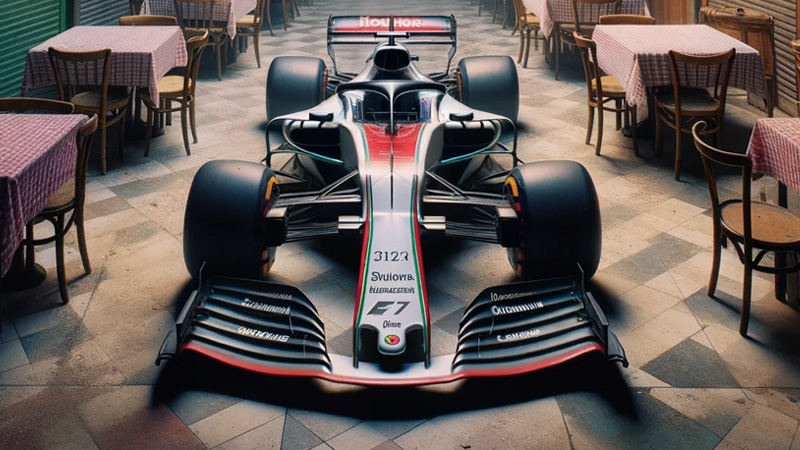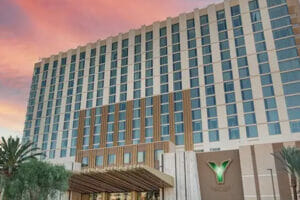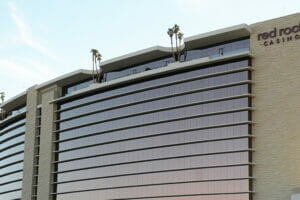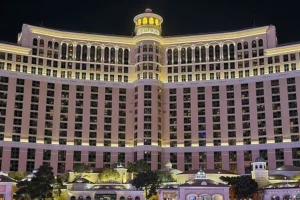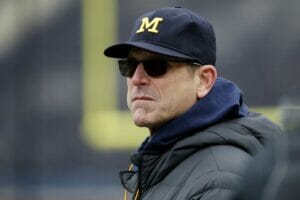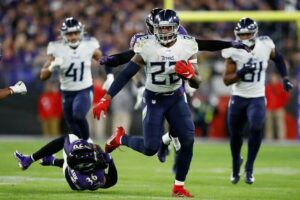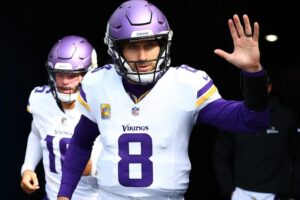Las Vegas Grand Prix Cost Some Local Businesses Millions, and They Want Compensation
The inaugural Las Vegas Grand Prix, held over November 16 to 18 last year, was a landmark event for many reasons.
The race itself, marred by disparaging prerace comments from eventual winning driver Max Verstappen and a hugely disrupted practice session, was, by all accounts, a sporting success. The thrilling action, set to the backdrop of the iconic Nevada casinos of the Las Vegas Strip, ended with celebratory scenes trackside and in the mainstream media.
Of course, that would be helped by the estimated $1 billion in extra revenue to Sin City. Nevada retail sportsbooks reported bumper revenues, as did the casino resorts of the Las Vegas Strip, and Harry Reid International broke visitor records.
However, not everyone was in such a jubilant mood. Many smaller businesses in Las Vegas reported substantial losses and operational disruptions in the lead-up to, during, and since the Grand Prix. They say the extensive preparations and construction activities associated with the event cost them millions of dollars, while the big casinos pulled in record revenues.
Millions in Relief Requested
Wade Bohn, a local business owner, reported a revenue drop from $8.5 million in 2022 to slightly more than $4 million in 2023, attributing this to F1-related disruptions. He is among several local business leaders who backed business consultant Lisa Mayo-DeRiso in her recent petition to the Las Vegas Convention and Visitors Authority, or LVCVA.
Among several requests, Mayo-DeRiso, speaking on-behalf of a dozen small businesses, asked for a $23 million relief fund to be made available to those who lost out. She also asked for reconsideration on a controversial bypass by the Koval Lane-Flamingo Road intersection, which businesses say has led to a huge fall-off in foot traffic.
The City initially said that the bypass bridge would be removed after the race. However, as of this writing, it is most definitely still up, and city officials have reportedly been considering making it permanent.
“We pay a ton of money in rent to be in the tourist corridor, and they deprive us from doing business from the Strip,” said Gino Ferraro, owner of Ferraro’s Restaurant.
The upscale venue has recently initiated new lunchtime opening hours in response to revenue losses, which Ferraro blames mostly on race preparations.
“We at Ferraro’s have lost in excess of more than $2 million in revenue,” he said.
“It raises the question: How can our Las Vegas leadership allow local businesses to struggle and suffer for a three-or four-day event? Who profited? A few hotels? It doesn’t make sense.”
Related: Spin It Vegas online slot, reviewed and rated
Addressing Concerns
Mayo-DeRiso made it clear to the LVCVA that the local businesses preferred to reach a settlement outside of courts. But a lawsuit was not out of the question.
Greg Maffei, CEO of Formula One’s parent company, Liberty Media, has apologized for the construction disruption. He has also promised that regional officials have started engaging with affected businesses to listen to their concerns.
“We do recognize some were disproportionately impacted by the construction required to put on an event of this magnitude,” said LVCVA President and CEO Steve Hill in a statement to the Las Vegas Review-Journal this week.
“We learned a lot going through the first year, and we have started discussion with businesses near the Flamingo-Koval intersection to understand their concerns. We will continue to work with them to find potential solutions and create opportunities, so that future races are better for all involved.”



